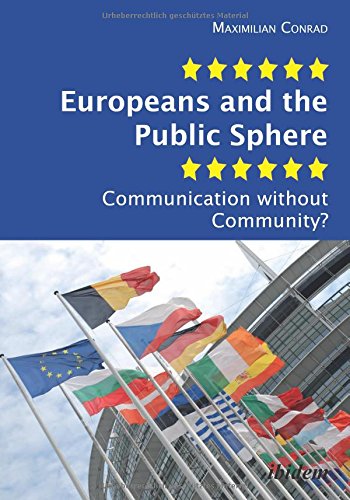

Most ebook files are in PDF format, so you can easily read them using various software such as Foxit Reader or directly on the Google Chrome browser.
Some ebook files are released by publishers in other formats such as .awz, .mobi, .epub, .fb2, etc. You may need to install specific software to read these formats on mobile/PC, such as Calibre.
Please read the tutorial at this link: https://ebookbell.com/faq
We offer FREE conversion to the popular formats you request; however, this may take some time. Therefore, right after payment, please email us, and we will try to provide the service as quickly as possible.
For some exceptional file formats or broken links (if any), please refrain from opening any disputes. Instead, email us first, and we will try to assist within a maximum of 6 hours.
EbookBell Team

0.0
0 reviewsWhat kind of public sphere is possible in the European Union with its considerable diversity of national identities, languages, and media systems? Against the backdrop of debates about a fundamental European community deficit and the possibility of postnational democracy, this book explores the role of a European public sphere not only in bridging presumed gaps between citizens and their representatives in the European institutions but also in creating transnational communicative spaces that contribute to the politicization of EU politics.
Drawing on Deweyan pragmatism, social constructivism, and the Habermasian notion of constitutional patriotism, this book moves beyond the conventional wisdom that a European public sphere necessitates the existence of a sense of European 'identity light'. Arguing that a political sense of community along the lines of a European constitutional patriotism can only emerge out of the democratic process itself, Maximilian Conrad looks at the role of daily newspapers not only as framers of public debate, but also as actors with distinct normative views regarding the future of the integration process, both in terms of the nature of the EU as a polity and the nature of democratic rule in this polity. The crucial empirical question addressed in the book is: Do newspapers with a pronounced preference for more democracy beyond the nation state also play a more active role in providing forums for transnational debate?